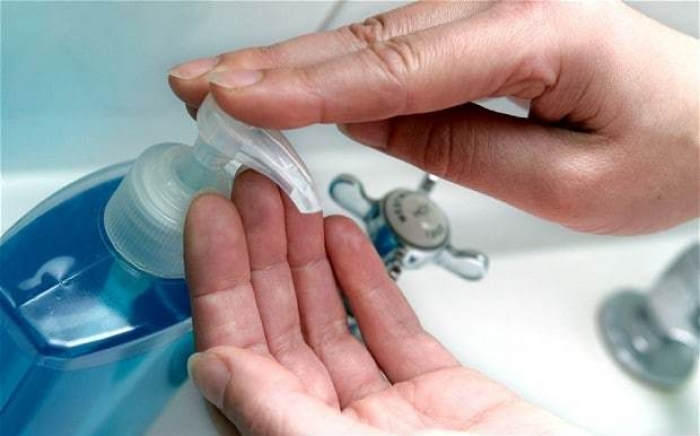In studies on mice, they showed female offspring to weigh 11 per cent more. Males were 8 per cent heavier on average.
The chemical, called triclocarban (TCC), is passed through both the placenta and through breastfeeding, trials suggest.
Researchers at Lawrence Livermore National Laboratory, California, said everyday exposure could also lead to 'irreversible' damage in vital organs.
TCC, which is also used in the medical field, interferes with lipid metabolism - slowing the body's natural breakdown of fat.
'A serious health risk'
Lead author Dr Heather Enright said: 'We demonstrated that TCC does effectively transfer from mother to offspring, both transplacentally and via lactation.
'Exposure to TCC during development may pose a serious health risk to the developing embryo and fetus.
'They are more sensitive to alterations in hormone levels, which may result in changes that often are irreversible.'
She continued: 'Our results are significant because of the potential risk of exposure to TCC through contaminated water sources and in the living environment.
'Early life exposure has the potential to cause irreversible outcomes due to the fragile nature of organ systems and protective mechanisms in developing offspring.'
The first evidence
The study, published in PLOS ONE, provides the first evidence yet that TCC can easily pass from mother to offspring.
It's concerning, given the chemical is among one of the most commonly detected contaminants found in wastewater.
The researchers also detected high concentrations of TCC in the brain, which has previously been shown to disrupt the development of the organ.
Imaging scans showed the chemical was collected in the heart and fat too.
They made the findings after tracing the chemical in the bodies of female mice who were administered with the chemical.
Is the chemical banned?
Last autumn, the US banned 19 different antibacterial chemicals, including triclosan and triclocarban, saying they were not effective at killing bugs.
British firm Unilever said it will phase out the two chemicals by the end of this year, replacing them with 'natural and nature-inspired' antimicrobes.
The new study follows a University of San Francisco report in June that suggested antibacterial soaps are useless at killing germs.
More than 200 scientists compiled evidence to warn the chemicals in such products could be causing 'more harm than good'.
More about: #health #antibacterialsoap
















































